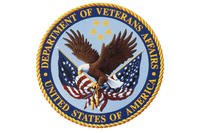If you are in the military, there is no doubt you have heard the term "zero tolerance" when it comes to the topic of drugs.
To be fair, this is a justified rule and policy. If you are going to be entrusted with protecting and serving our nation, then there is an expectation that you are not doing it while under the influence of any illicit substances. As such, service members -- from Recruit to General -- are regularly tested for drugs to prove they are operating in their best physical and mental condition.
With this firm stance and policy surrounding drug usage and testing, many service members may think that if their results come back positive, they will automatically face the consequences and have their careers severely damaged.
That's not always the case.
The consequences for a positive drug test can range from administrative separation to court-martial, charges which can be debilitating to your career. They also can depend on when it happens in your career.
Failing a drug test does not have to mean your career is over. There are many ways to advocate for yourself should your test come back positive. Knowing how to effectively advocate in this situation is the difference between facing an adverse separation and maintaining your career.
Consequences of a Failed Military Drug Test
Generally speaking, applicants to the military are able to retake a failed drug test when at a Military Entry Processing Station (MEPS). Depending on the branch of service, recruits who test positive for drugs may be able to reapply 90 days after their previous test. However, should you fail the second test, you can be barred from serving in any branch of the military going forward.
For active-duty service members, they are not given that second opportunity. If they do test positive, administrative and disciplinary action will be forthcoming. Depending on which type of drug returned a positive result, the consequences could be more serious. Throughout much of this process, service members may not be assigned a free military defense counsel until it's too late.
How To Fight Back After a Failed Military Drug Test
Nevertheless, a failed drug test does not mean it's over. You often hear about the "zero tolerance" and how compliance is mandatory. However, it is mandatory processing, not mandatory separation.
There are many ways to challenge these allegedly positive tests. You can challenge the way the sample is collected, the way it was handled, and the way it was tested. The collection process is detailed, and the testing procedure is scientific. I have seen many cases where samples get mislabeled or mishandled, which can lead to questions about the accuracy of the results. With your career on the line, you should be sure the process was done correctly.
Another way to fight back would be if you could prove you unknowingly ingested the drug. If you innocently ingested a substance (which can happen in a variety of ways especially in this day and age), then you are not guilty. Sure, your test was positive, but did you intentionally use that drug? You need to force the government to prove that you did and not just accept it based on a positive result.
It is Never too Early to Be Prepared
As with most careers, drug usage is always something to be conscious of since the consequences can be catastrophic. This is doubly so in the military, as the consequences of a failed drug test will affect you even after your time in the service. Negative characterizations of service will follow you forever. Even if the odds may seem impossible, it's worth it to know how to fight a positive drug test so you can best protect your reputation and military career. Don't give up.
Marc T. Napolitana, is an Associate with Tully Rinckey PLLC's Washington, D.C. office, where he practices in support of clients needing representation in Military Law and National Security Law. Marc brings his extensive legal experience to Tully Rinckey from the United States Marine Corps and two private law firms.











